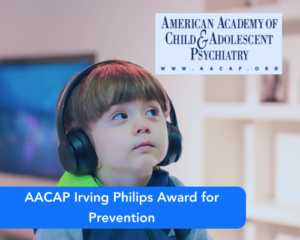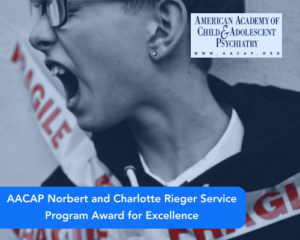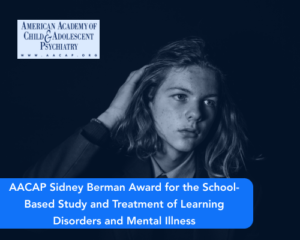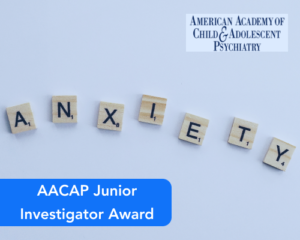How to win mental health scholarships
As with any scholarships, mental health scholarships are highly competitive. To win educational funding, you’ll have to stand out from the crowd. Here are a few tips to help your chances:
Use your essay space to emphasize your strengths
Struggles with mental health are very difficult for students. Your mental health may have impacted you in many different ways that set you back in your academic and personal life. While it’s very important to dedicate time to processing these struggles, it’s usually a good idea to keep them off of your scholarship application essays.
The organizations offering these scholarships are interested in selecting candidates who have overcome difficulties, have a strong drive, and a vision of their future and how to accomplish it. So, when you do mention mental health in your essay, it’s a good idea to frame it as an opportunity for growth and a formative experience. Talk about your past in terms of how it drives you to a promising future.
Even if you have a powerful personal story involving loss, grief, or tragedy, that tragedy alone is typically not sufficient to win you scholarships. Since you only have limited words to catch the attention of your application reviewer, you’re best off using those words to indicate your strengths and potential rather than describing the difficulties you’ve suffered.
Do your research
Before beginning your applications, it’s a good idea to read your essay prompt very thoroughly and get an idea of what the reviewers want from you. How can you bend this prompt to show your strengths and potential?
You should also research the organization offering the scholarship. Find out their core principles and values, and make sure to emphasize these in your application materials. They are looking for a candidate who aligns with their mission and values. You should make sure to show how you are that candidate.
Fine-tune your writing with our guides
An effective essay will be clear, concise, and compelling. Scholarship essays take a specific set of skills to write effectively. Luckily, we have a list of guides to help you write the best possible application. That includes guides on how to start and end a scholarship essay, how to respond to common scholarship essay prompts, and how to write a scholarship resume.
We can also help you fine-tune your writing to 250 or 500 word limits, and write an essay about yourself. Finally, don’t miss our ultimate guide to finding and winning scholarships!
Mental health resources for students
Many colleges and universities offer mental health resources for enrolled students. If you need guidance, that is a great place to start. Because the counseling center at your college has experience with students your age, they should be able to steer you in the right direction. If you want or need to do research on your own, the following websites are a few of the most credible you can find.
Anxiety and Depression Association of America
Check out the varied list of resources offered by the ADAA that focus specifically on the needs of college students.
National Alliance on Mental Health
The National Alliance for Mental Health, or NAMI, as it is often referred, is the largest organization dedicated to helping Americans with mental illness build better lives. With 600 state organizations, NAMI offers free help and education. For college students, this “Starting the Conversation” guide and video is an excellent resource.
ULifeline
ULifeline is an anonymous online resource center especially for college students. Students can comfortably search for information regarding emotional and mental health. ULifeline is a project of The Jed Foundation, one of the USA’s leading organizations regarding the mental health of college students.
Frequently asked questions about mental health scholarships
Is there a scholarship for bipolar disorder?
Is there a scholarship for substance abuse problems?
Many individual colleges offer scholarships for addicts who are demonstrating a commitment to combatting their substance abuse issues. Eligibility may vary by school, but Texas Tech University is a great example of a school offering a scholarship for recovering addicts through their Center for Collegiate Recovery Communities.
Is there a scholarship for students with an eating disorder?
There are many scholarships out there for students with an eating disorder. Most are offered on a regional and college-by-college basis. For example, the University of Wisconsin-Madison offers McBurney Scholarship Awards to students with disabilities, which is inclusive of eating disorders. These scholarships are not based on financial need, so the schools will take factors such as GPA and academic achievement into account.
Do I need to have a diagnosis to apply for a mental health scholarship?
Can you get a scholarship for anxiety?
Am I at a disadvantage applying for scholarships if I struggle with mental health?
Struggling with mental health is a difficult process in and of itself, and for this reason, you will have a natural disadvantage in that you will have to overcome those issues. However, scholarship providers will not think less of you for having mental health struggles. You should not feel a pressure to hide your mental health issues on your applications. If you find that they are relevant to what you are discussing in your essays, you can feel free to bring them up to give the provider a full picture of yourself.
Remember, you get to choose what details to include. You can decide only to include information that you are comfortable with, or to include no information at all. But you should not feel as though you have to hide any of your mental health struggles in your applications. They might help explain fluctuations in academic performance or other factors in your application.
Explore these other scholarship categories:
- Top ADHD scholarships
- Top scholarships for students with bipolar disorder
- Top scholarships for students with autism
- Top scholarships for disabled students
- Easy scholarships to apply to
- Scholarships for students with a disabled parent
- Top scholarships for student with learning disabilities
- Top scholarships for high school seniors
Join for exclusive scholarships, personalized matching, and application tracking. 0% Spam, 100% Free.































